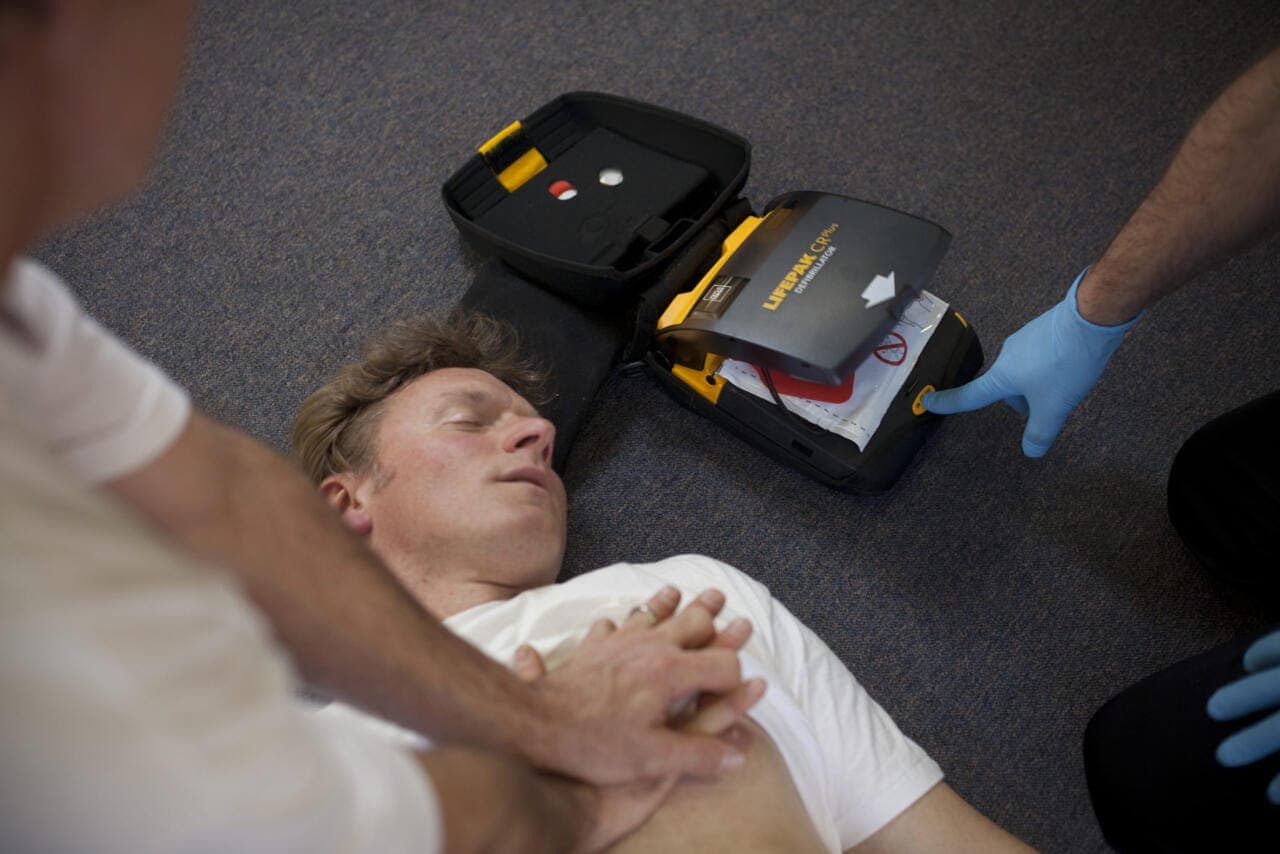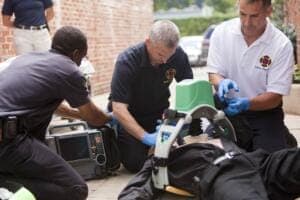How long should CPR be performed?

CPR is a topic that will never cease being researched, and part of that research includes looking at how long to perform CPR. In 2000, the National Association of EMS Physicians released a statement that CPR should be performed for at least 20 minutes before ceasing resuscitation.
More research has been done since then that suggests longer time performing CPR results in higher survival rates. Unfortunately, there is insufficient evidence to make any concrete protocols, but at least we have a base line to go off of.
In this article, we’ll talk about the research that’s currently out there, and what we do know about survivals rates in relation to how long to perform CPR. As a caveat, this also supports why it is so important to retrain in classes like CPR, BLS and ACLS courses so that we can learn about what’s proving to be most effective.
#1 Japanese Study
Data from over 280,000 people were reviewed who had experienced cardiac arrest outside a hospital. All these people had been witnessed going into cardiac arrest. Next, they looked for who out of that group had their heart restarted from CPR. Doctors call this “return of spontaneous circulation.” This group included almost 32,000 people.
These patients were examined 30 days after their cardiac arrest, and researchers found that more than 27 percent had good brain function. The victims who had good brain function averaged 13 minutes from the time their heart stopped beating, to the time it started beating again. The ones who didn’t fair so well averaged about 22 minutes of CPR efforts before their hearts started beating again. Yet some people even had favorable outcomes after as long as 38 minutes of resuscitation efforts.
After some other variable were taken into account for neurological outcomes, researchers found that the odds of surviving an out-of-hospital cardiac arrest without severe brain damage dropped 5 percent for every 60 seconds that passed before spontaneous circulation was restored.
Based on all these statistics, researchers found that the time from collapse to a return of spontaneous circulation, that CPR lasting 38 minutes or more was advisable.
“It may be appropriate to continue CPR if the return of spontaneous circulation occurs for any period of time,” said Ken Nagao, M.D., Ph.D., professor and director-in-chief of the Department of Cardiology, CPR and Emergency Cardiovascular Care at Surugadai Nihon University Hospital in Tokyo. It is currently the standard that once a pulse is felt, CPR should be continued for another 2 minutes.
This research about how long to perform CPR hasn’t been officially published in a peer-reviewed journal yet, but the findings are encouraging.
#2 Canadian Study
In this study, there were some criteria used to evaluate whether resuscitation should be stopped.
- Aren’t witnessed to arrest by EMS;
- Never received a rescue shock; and
- Never have return of pulses prior to commencing transport.
If patients met this criteria, their chance of survival was lower. For those that did not meet this criteria, their chance of survival increased with CPR. In fact, supporting this implication, a Korean database found that EDs that have an institutional policy to continue CPR for only 20 minutes had lower survival (2.1%) than hospitals who continued CPR for 20–30 minutes (5.2%) or > 30 minutes (5.6%).
For more in depth information on these study relating to how long to perform CPR, you can read the article published in JEMS in March 2016 entitled “Why We Should No Longer Terminate Resuscitation After 20 Minutes”.

Conclusion
Survival outcomes depend on several factors: the health of the patient, how long before CPR was initiated, the quality of CPR, etc. With new advances such as mechanical CPR devices, readily available public access AEDs, and more, we can expect to see more positive outcomes from performing CPR for greater than 20 minutes.
Overall, victims still have the greatest chance of survival within 16-24min of witnessed cardiac arrest. However, more studies are showing that when a person meets certain criteria, we should be performing CPR for 30 minutes, 45 minutes, and even an 1 hour to give victims the best chance of survival.
Vitali provides life-saving training taught by real emergency responders. You can view our current locations where we have regularly scheduled classes, or request for us to do on-site training at your location.


